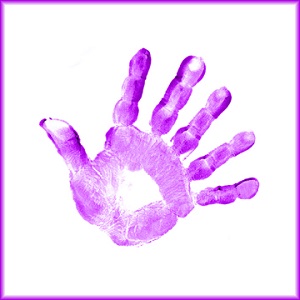|
VOICE ACTING Your Voice Is A Window To Your Soul ... And 'Moodies' Is An App For That April 17, 2015  By Paul Strikwerda By Paul StrikwerdaVoice Actor The person who coined the phrase, "Eyes are the window to the soul,” was wrong. If anything can offer us a unique insight into someone’s soul, it is the human voice. The voice tells us something about someone’s mood, someone’s mind, and someone’s history. Sometimes it’s subtle. Sometimes it cries out to you. The voice is an example of how mind and body are clearly connected. Our tone and texture changes when we’re in love, when we’re angry, when we’re feeling insecure, and when we’re sick. The way someone speaks can tell us where he or she is from, how (and where) someone was educated, and it reveals something about someone’s (desired) social status. By listening to someone’s voice, experts can diagnose certain health problems. A croaky voice may indicate acid reflux. A head cold voice can point to chronic sinusitis. A hoarse voice could be a sign of laryngeal cancer. But there’s more. We can change the meaning of words, simply by changing our tonality. When our body language, the words we speak, and our tone of voice don’t match, we won’t be taken seriously. People can hear we’re not sincere. In fact, sincerity is so hard to hard fake that only pros can pull it off. TOUCHED BY VOICES You and I have been touched by certain voices. For better, or for worse. Can you think of a few? As kids, we’ve all experienced that when our mom or dad called us with that special tone of voice, we knew we were in trouble. Certain teachers had the uncanny ability to terrify us, because of what they said, and how they said it. So much so, that years later, we can still recall their voices, and get an instantaneous physical reaction. Someone’s voice can also induce a very positive mood. Perhaps it’s just me, but I could never fall in love with someone who has a horrible voice. When our beloved whispers our name in that very special way, our heart melts, and we’re almost hypnotized. When a charismatic public speaker rallies the troops, we feel energized and inspired. That first word from a child we brought into the world, is something we’ll always remember. Our sensitivity to tonality comes from the time we were infants, when we learned to attribute feelings to certain words through the way they were spoken. UNIQUE OR UNIVERSAL? Now, there’s one thing I’ve always wondered. With so many cultures, languages, and dialects in the world, are certain vocal inflections universal, or limited to one geographic area? More importantly, do they mean the same thing? Take the tonality of love, for instance. Is that something we have in common with every person on this planet? Does "angry” sound the same, wherever we go? Yuval Mor and Yoram Levanon spent 18 years researching more than 60,000 test subjects speaking 26 different languages. What they found was surprising: language and culture make little difference in what they call "emotion analysis.” Emotional Analytics is a new scientific field that focuses on identifying and analyzing the full spectrum of human emotions and personality. AN APP FOR THAT Yuval and Yoram’s company, Beyond Verbal, developed a way to decode vocal intonations into their underlying emotions in real-time. It’s all based on the notion that what we say is not as important as how we say it. In 2013, Beyond Verbal launched a free app called Moodies to extract, decode, and interpret human emotions from voice samples that are as short as 20 seconds. The app claims to give information on the speaker’s mood, his or her attitude, and on someone’s personality. Here’s how it works. The software examines how we speak, and listens for specific patterns. It analyzes things like pitch, tempo, pauses, and the volume of the voice. It then compares these patterns to a database of research. The ongoing analysis on the screen is presented in clusters as the subject speaks. It’s important to note that analyzing emotions is very different from detecting lies. That is something the software cannot do. Currently, the program can recognize about four hundred different emotions. The makers say it’s about 80% accurate. SOME PRACTICAL APPLICATIONS If Beyond Verbal’s method is correct, we now have a way to find out what people really feel, in spite of what they’re saying. That information could be useful in at least three areas: 1. Person to person interaction. Beyond Verbal software is already used in call centers. It helps market researchers to find out how people genuinely feel about products, promotions, and… politicians. Researchers can get past the socially acceptable answers, and go with the emotional response. Voice analysis is also used in job interviews and sales meetings. It can answer questions like:
2. Allowing machines to understand us better, and improve interaction. At the moment, virtual assistants such as Siri and S Voice base their response on what we say, and not on how we say it. If they could read our mood, this could influence their answers. Beyond Verbal has already made their platform available to other developers to make the devices of the future more intuitive. Let’s say we’d use voice control for a service like Netflix. Based on our intonation, Netflix could recommend movies that would fit the mood we’re in. iTunes could work the same way. Some video game controllers already respond to subtle pressure and body heat. What if they could hear our fear, and change the progress of the game accordingly? What if voice analysis software in a car could pick up if a driver was under the influence of alcohol, or suffering from road rage? Based on that, it could start making adjustments, and e.g. slow the vehicle down. 3. Self-improvement; getting a better understanding of ourselves. This is particularly interesting to me as a professional communicator. Quite often, there’s a disconnect between how we think we come across, and how our communication is perceived. Let’s say you have a piece of copy that needs to be read in a friendly, but convincing way. How do you know you hit the nail on the head? Do you call your coach, a friend or a colleague? I took my iPhone, opened up the Moodies app, pressed the mic button, and started reading the script. After about 15 seconds, I got my feedback in three layers. The app keeps refreshing, so you can see if your adjustments have the desired effect. When you’re done, and you concur with the analysis, you can click "Agree,” helping the software to be more accurate in the future. IT'S QUITE ACCURATE I have to admit, before I tried Moodies I was very skeptical. I mean, can a machine really detect emotions? It’s hard enough for us, humans. But when I started using it, I was surprised by the results. Whether I was speaking Dutch (my first language), or English, it was quite accurate. Moodies didn’t tell me what I wanted to hear, like horoscopes do. It told me what I needed to hear. Based on that, I changed my tonality to match the specs of the script. Getting this type of instantaneous feedback was refreshing! WHAT'S NEXT? Beyond Verbal was launched in May 2013, with a $3.8 million investment, and has about 20 employees. Examiner.com named Moodies the best iPhone app of 2014, and Forbes listed it as one of the five innovative marketing solutions that can help a business grow. This Tel Aviv-based company is definitively onto something, and it seems they’ve only scratched the surface. Even though I believe a computer can never penetrate the depths of the human soul, it can certainly open a window to our emotions. Today, it seems that one of the best ways to unlock that window, actually speaks for itself. --------------- ABOUT PAUL Paul Strikwerda is a 25-year veteran of the voice over industry whose Nethervoice service features German and Dutch voice overs, translation and evaluation services. Born in Holland, he has worked for Dutch national and international radio, the BBC and American Public Radio. Although 90% of his work is in English, Strikwerda also records in Dutch, German and French. Clients include Novartis, Johnson & Johnson, and the Discovery Channel. And he is author of the new book, Making MONEY In Your PJs: Freelancing for voice-overs and other solopreneurs, and publishes an informative and entertaining blog, Double Dutch. Email: paul@nethervoice.com Web: www.nethervoice.comDouble Dutch Blog: www.nethervoice.com/nethervoice Making MONEY In Your PJs: http://makingmoneyinyourpjs.com |
Inspiring interviews help your VO career
With Sean Daeley and Paul Stefano - check it out!
Email alerts to new VoiceOverXtra articles
On Michael Langsner's Voice-Over Roadmap Podcast
As of the NEW website launch, 03/22/2012










Thanks for pointing this out. I can hardly wait to see what it makes of my next monster trucked voice over :-)
dD